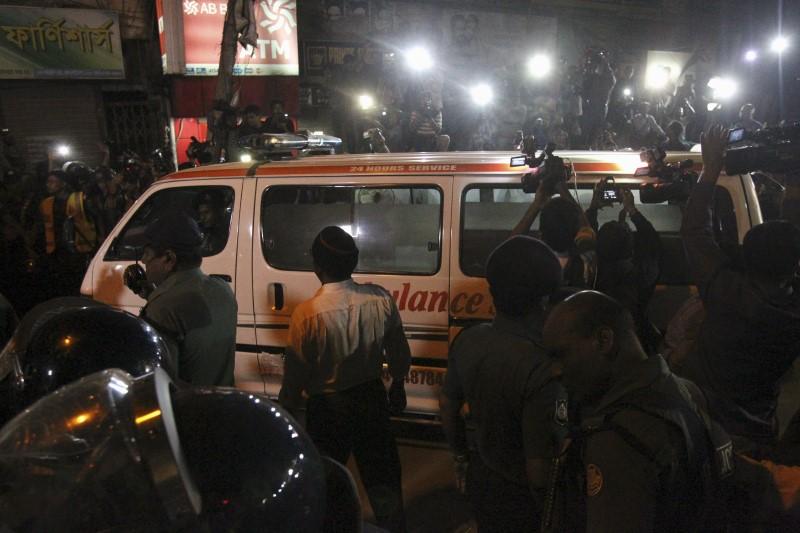Bangladesh is one of the world’s most highly populated countries. Ranking the world’s seventh, with a population of 160 million, Bangladesh is also considered one of the most densely populated Muslim nations, ranking third after Indonesia and Pakistan.
Four main political parties exist in Bangladesh, the most being Jamaat-e-Islami.
Islamist parties enjoy the freedom to perform their political and social activities.
However, frequent acts of extremist violence prove that a radical mindset is established at the early stages when founding or recruiting terror groups.
Bangladesh witnessed dangerous transformation led by religious groups that are similar to those that had formerly established terror groups in Afghanistan, Pakistan and the Middle East.
Previous terror crimes were accounted to the responsibility of local opposition groups.
Local opposition groups were the typical party accused for past terror crimes in Bangladesh. The government refused to admit the problem, and to describe it as terrorism-spreading in the country.
Last year, an Italian working for a humanitarian organization, and a Japanese man working in agriculture, were killed.
Going against the Bangladesh government’s denial, the worldwide recognized terrorist ISIS group claimed the abduction and murder of more than 20 hostages; most of them Italian and Japanese.
The government refused to admit the problem, and to label it as terrorism. These operations were carried out nationwide, and targeted cultural and political figures.
A publisher was killed in Dhaka. Before that, a writer was stabbed and another shot. One of the victims had reported receiving ISIS threats to police, but authorities considered the threats as an individual act that’s not affiliated to an organized terrorist group. Four bloggers had also been killed.
Since the recent abduction involved the murder of more than 20 hostages and received international attention, there is no longer doubt about the validity of ISIS’s claim of responsibility.
ISIS, however, does not always exist as a well-organized group. The group’s most elaborate solid manifestations are its self-declared caliphates in Raqqa, Syria and Mosul, Iraq. Nonetheless, the group chiefly works for a project missioned to spread terrorist ideology through modern means of communication.
One can assume that modern day terrorism acts like transcontinental companies, working on a multinational capacity and dependent on promotion and trade.
In the past 10 years, we have seen many manifestations of extremism traveling to Bangladesh from Middle East, via extremist religious preaching and collecting funds in the name of charity.
There are no occupying forces or foreign powers in Bangladesh. There is no civil war and most of its population is Muslim, the majority being Sunni. However, this did not prevent extremism, which suggests the presence of Western culture and immoral values that must be counteracted.
What is happening in Bangladesh is happening in several other countries and displaying the same methods. However, cooperation between countries is limited as to enhance the process of exchanging information about potent terrorist groups and criminals, and their financial transactions and marketing tools.
Current cooperation does not tackle primary terrorist ideology, nor does it attend environments fostering extremist mindsets. What is the point of this delayed cooperation when the disease has spread?
